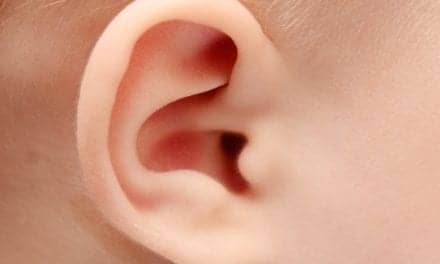Hearing loss and other auditory problems are strongly associated with COVID-19 according to a systematic review of research evidence led by University of Manchester and NIHR Manchester Biomedical Research Centre (BRC) scientists. An article describing the findings appears on the Taylor & Francis Group website.
Related article: COVID-19 Impact on Hearing Loss Study to Commence
Professor Kevin Munro and PhD researcher Ibrahim Almufarrij found 56 studies that identified an association between COVID-19 and auditory and vestibular problems. They pooled data from 24 of the studies to estimate that the prevalence of hearing loss was 7.6%, tinnitus was 14.8%, and vertigo was 7.2%.
They published their findings in the International Journal of Audiology.
However, the team – who followed up their review carried out a year ago – described the quality of the studies as fair. Their data primarily used self-reported questionnaires or medical records to obtain COVID-19-related symptoms, rather than the more scientifically reliable hearing tests.
The study was funded by is NIHR Manchester Biomedical Research Centre (BRC)
Kevin Munro, professor of audiology at The University of Manchester and Manchester BRC Hearing Health Lead said: “There is an urgent need for a carefully conducted clinical and diagnostic study to understand the long-term effects of COVID-19 on the auditory system.
“It is also well known that viruses such as measles, mumps, and meningitis can cause hearing loss; little is understood about the auditory effects of the SARS-CoV-2 virus. Though this review provides further evidence for an association, the studies we looked at were of varying quality so more work needs to be done.”
Munro, is currently leading a year-long UK study to investigate the possible long-term impact of COVID-19 on hearing among people who have been previously treated in hospital for the virus. His team hope to accurately estimate the number and severity of COVID-19 related hearing disorders in the UK, and discover what parts of the auditory system might be affected. They will also explore the association between these and other factors such as lifestyle, the presence of one or more additional conditions, and critical-care interventions.
A recent study led by Munro, suggested that more than 13% of patients who were discharged from a hospital reported a change in their hearing.
Almufarrij said: “Though the evidence is of varying quality, more and more studies are being carried out so the evidence base is growing. What we really need are studies that compare COVID-19 cases with controls, such as patients admitted to hospital with other health conditions.
“Though caution needs to be taken, we hope this study will add to the weight of scientific evidence that there is a strong association between Covid-19 and hearing problems.”
Munro added: “Over the last few months I have received numerous emails from people who reported a change in their hearing, or tinnitus after having COVID-19. While this is alarming, caution is required as it is unclear if changes to hearing are directly attributed to COVID-19 or to other factors, such as treatments to deliver urgent care.”
Original Paper: Almufarrij I, Munro KJ. One year on: An updated systematic review of SARS-CoV-2, COVID-19 and audio-vestibular symptoms. International Journal of Audiology. 2021. DOI: 10.1080/14992027.2021.1896793.
Source: Taylor & Francis Group, International Journal of Audiology





